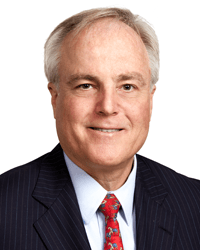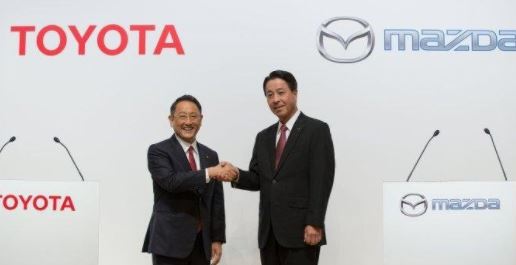North Carolina and South Carolina Pursue Toyota-Mazda Plant
Japanese automakers Toyota Motor Corp. and Mazda Motor Corp. recently announced plans to invest $1.6 billion to build a U.S. assembly plant. The new investment is reflective of a new alliance between the competitors that focus on small car production and the development of connected-car and safety technology and electric vehicles.
While a site has not been selected, at least 11 U.S. states are vying for the project, including North Carolina and South Carolina. The Wall Street Journal reported that Alabama, Florida, Kentucky, Illinois, Indiana, Iowa, Michigan, Mississippi, North Carolina, South Carolina and Texas were the states vying for the project.

North Carolina Commerce Secretary Tony Copeland told the Charlotte Observer, “We’ve been having discussions with all the interested parties that would be involved with this project. We’re actively involved with this. Everyone is being briefed and kept in the loop from the executive on down through Commerce.”
Economic development officials and representatives from South Carolina’s Governor’s office will not comment on active economic development projects. However, individuals familiar with the search have confirmed that both North Carolina and South Carolina are active in recruiting the plant. Economic development consultants have told GroundBreak Carolinas that the Toyota Mazda project is seeking a site of at least 1,000 acres and both states have sites that meet the requirements. Commercial real estate firm, JLL has been leading the search for Toyota-Mazda for at least 6 months.
According to the North Carolina Economic Development Partnership website, North Carolina is home to 295 automotive companies that employ over 26,000 people. North Carolina’s automotive manufacturing industry grew 25 percent in the past five years. While the state lack’s an automotive OEM plant, it is home to Thomas Built School Buses, Freightliner and Daimler. North Carolina is also home to numerous tier 1 and tier 2 automotive suppliers including Continental, Borg Warner, GKN Driveline, Denso, Goodyear, Bridgestone, Cooper Standard and many others.
Stan Kelly, president and chief executive of Piedmont Triad Partnership, told the News Record, “North Carolina, and the area in central North Carolina in particular, is perfectly situated, and prepared, to compete for and win the next manufacturing facility for Toyota/Mazda.”
Despite not having another automaker in the state, North Carolina should be considered a front runner according to John. H. Boyd, a principal in The Boyd Co., a site-location consulting company based in New Jersey.
He recently told the Winston-Salem Journal, “The plant will be a new-generation plant housing state-of-the-art, emerging technologies in artificial intelligence and auto connectivity,” Boyd said. “Electric and autonomous cars are vehicles of the future — and not the distant future, either.” Proximity to the Research Triangle Park (RTP) could be a key factor in the site location decision.
South Carolina is home to BMW, Mercedes-Benz Vans and Volvo Cars. The state also home Michelin’s U.S. headquarters and several manufacturing facilities. The state also has a very robust automotive supply chain.
“We are a state that houses BMW, Volvo, Mercedes-Benz and Boeing,” Annie Fairwell spokesperson for the South Carolina Commerce Department told the Greenville News. “We have a workforce that is ready and available, and we can create the workforce where necessary because we have the tools, tactics and strategies to do it.”
During the last two decades, the southeast has become the location of preference for many foreign manufacturers due to labor laws that are favorable to businesses and available workforce. The region also boasts a healthy supply chain and access to several international ports.
“Nothing would please me more than if, through this alliance, we can help to energize the auto industry and create more car fans by bringing together two competitive spirits to spur each other on, leading to innovations and fostering talent and leaders,” said Mazda, President and CEO Masamichi Kogai.
Marking the agreement, Toyota President Akio Toyoda said: “The greatest fruit of our partnership with Mazda is that we have found a new partner who truly loves cars. It has also sparked Toyota’s competitive spirit, increasing our sense of not wanting to be bested by Mazda. This is a partnership in which those who are passionate about cars will work together to make ever-better cars. It is also the realization of our desire to never let cars become commodities.”
The new plant is set to start operation in 2021, will employ 4,000 people and will have a production capacity of at least 3000,000 vehicles each year. According to regulatory filings, the new production facility will make Corolla sedans for Toyota and crossover SUVs for Mazda. Toyota is currently producing the Corollas in Mexico.







